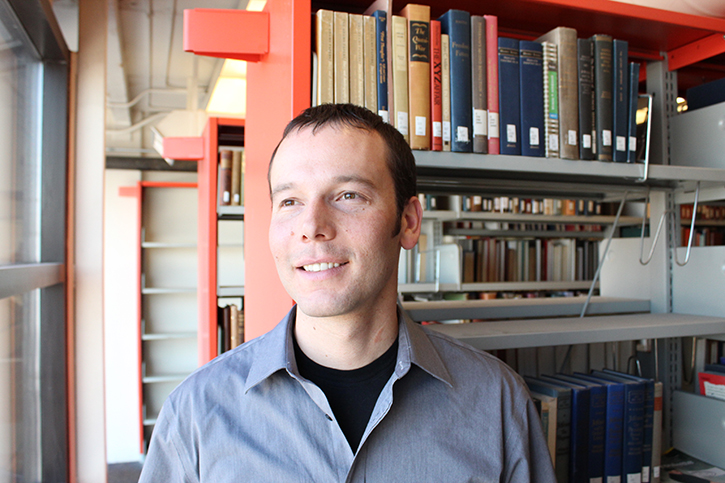
Director of the Moral Psychology Lab in The University of Winnipeg’s Faculty of Arts, Assistant Professor Dr. Jeremy Frimer
As director of the Moral Psychology Lab in The University of Winnipeg’s Faculty of Arts, Assistant Professor Dr. Jeremy Frimer says the goal of much of his research is to better understand why people squabble, and “how to get people to cooperate”. Working with psychology honours and graduate students, Frimer investigates the psychological processes driving conflict and cooperation.
In “Moral Actor, Selfish Agent,” an article soon to be published in the Journal of Personality and Social Psychology, Frimer worked with honours students Harrison Oakes and Nicola Schaefer to take a deeper look at an old question: are people primarily selfish or moral?
“The paper presents evidence that human nature is inherently dualistic,” Frimer says. When people feel watched, they are more likely to say they’re motivated to help others. But when people are more focused on their own actions and lives, they are more likely to say their actions are self-serving. “It’s almost like people have two selves—a moral actor trying to impress others, and a selfish agent that looks after their own interests. Both the actor and the agent are evolutionarily adaptive.”
In another recent study, inspired by the rise of highly divisive politics in the US, the use of language emphasizing cooperation in US congress was measured over a 16-year period. “The use of cooperative language—words like support, generous, and kind—rose steadily in the later Clinton years, peaked in the aftermath of 9-11, and has been dropping ever since. Public approval ratings of US Congress have followed the same trend over the same time period.” Frimer is currently investigating the possibility that simply asking people to use cooperative language can induce cooperative behavior.
The political theme appears in much of Frimer’s research. “When trying to find solutions to disagreements between the left and right, you need to understand just how morally different or similar the two sides really are.” In a paper he co-authored last year with colleagues at The University of British Columbia (UBC), Frimer found that liberals and conservatives largely agreed about which influential figures of the 20th century were moral (e.g. Gandhi, Mandela) and which were not (e.g. Khomeini, Mao). The study suggests the similarities between the two groups “outweigh their differences”.
Another paper currently under review found a similarity some may find surprising: conservatives are not the only ones who uphold the importance of obedience to authority. Liberals also do, when the authority is liberal (a civil rights leader for example).
Frimer’s current honours student, Caitlin Tell, is examining yet another political parallel, in the moral approach to a couple of hot-button issues. Liberals denounced the Keystone Pipeline as a desecration of nature, whereas conservatives defended it on the grounds of the rights of private ventures. Tell finds startling symmetry on the topic of same-sex marriage, only in this case conservatives denounced using a moral desecration argument, whereas liberals upheld same-sex marriage on the grounds of equal rights.
“Liberals and conservatives had fundamentally similar moral faculties,” Frimer says. “They just play for different teams.”
Frimer began working at The University of Winnipeg in the summer of 2012, after researching as a Postdoctoral Fellow at UBC, where he had earned his BASc, MA and PhD. Drawn to work in moral psychology because he loves to challenge important social issues, Frimer says “I’m motivated to do something that fascinates me, to solve the issues our generation faces.” He is currently accepting honours thesis student applications for 2014-2015.




